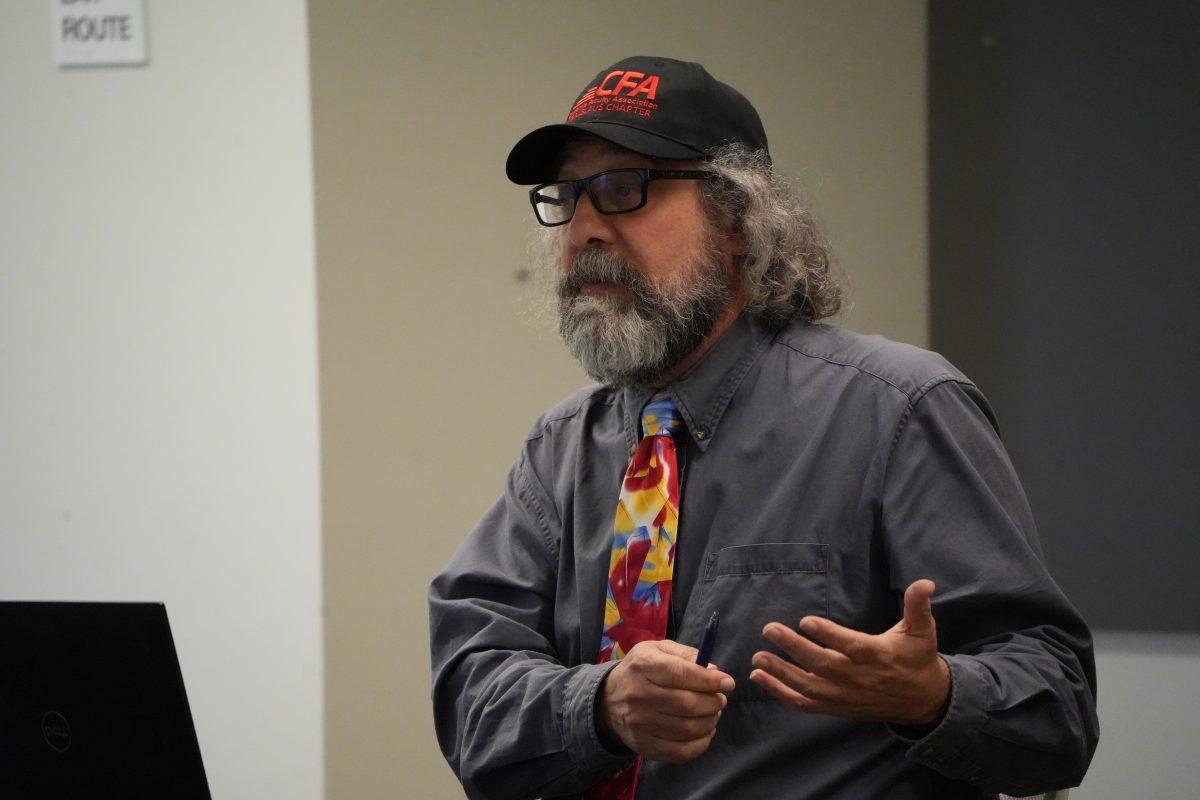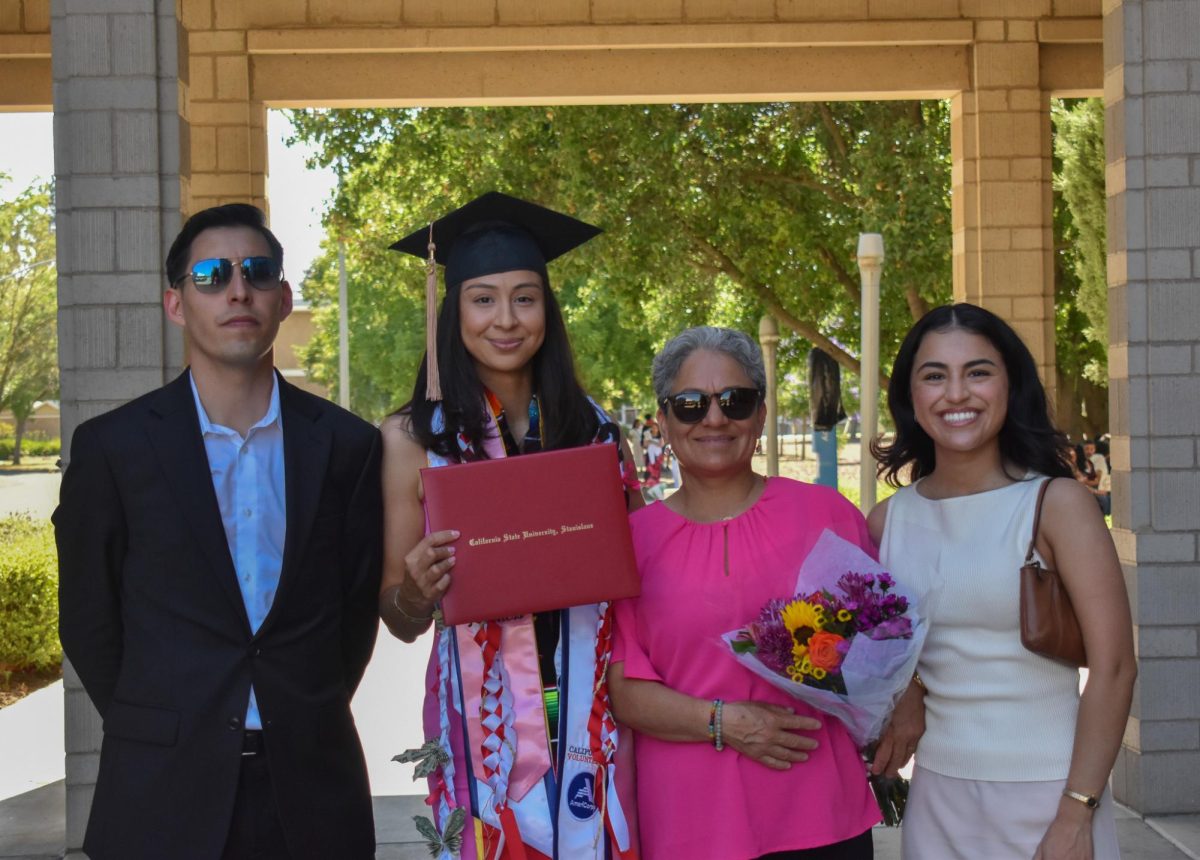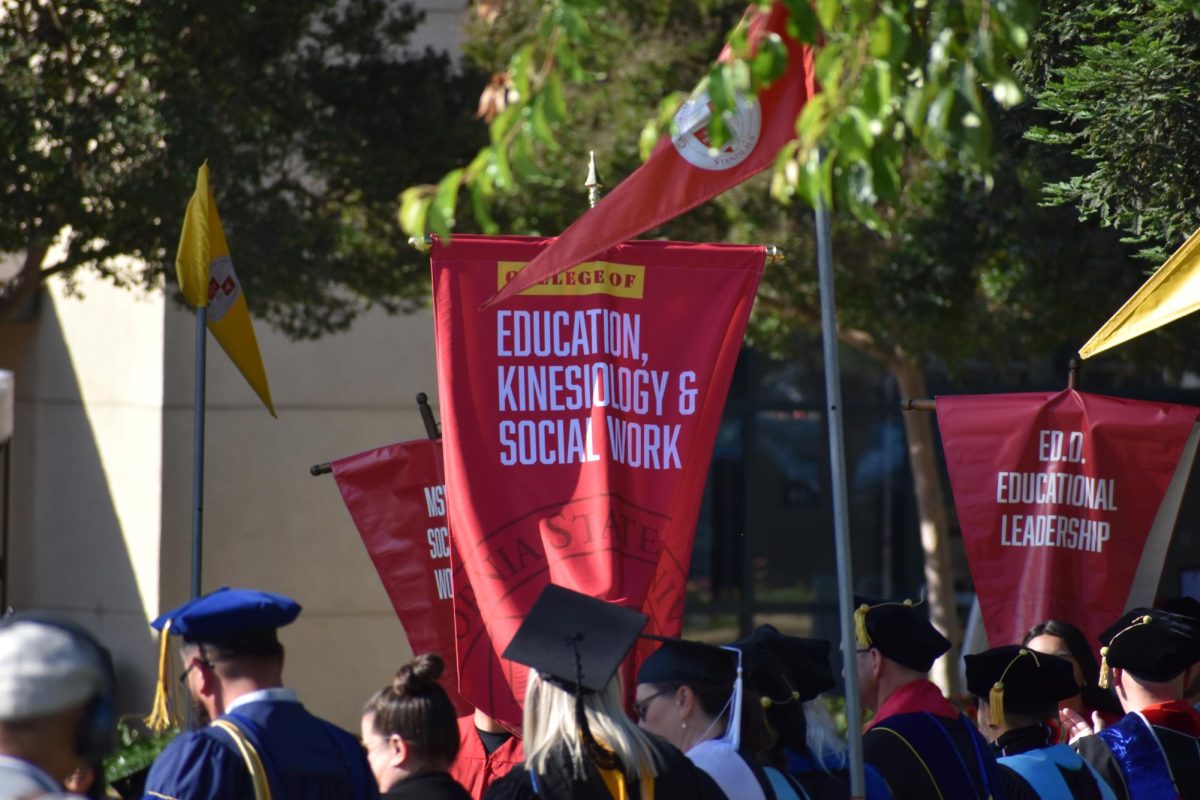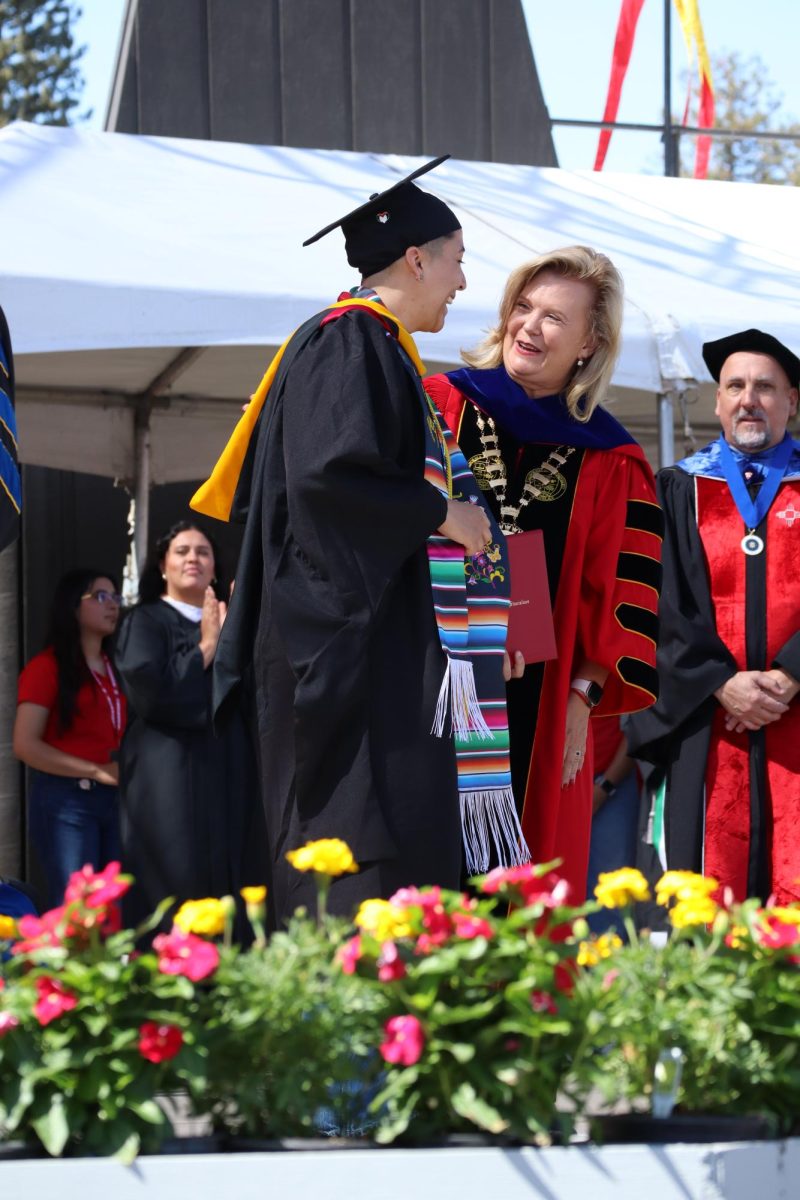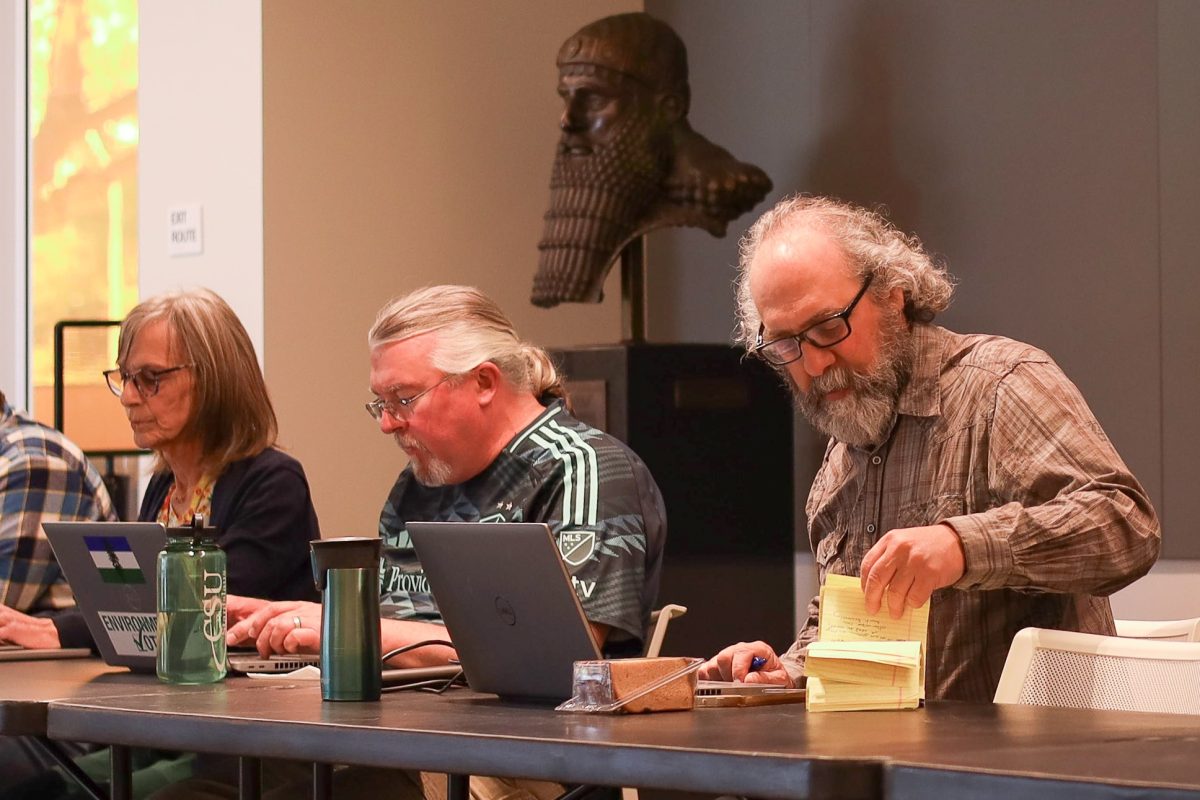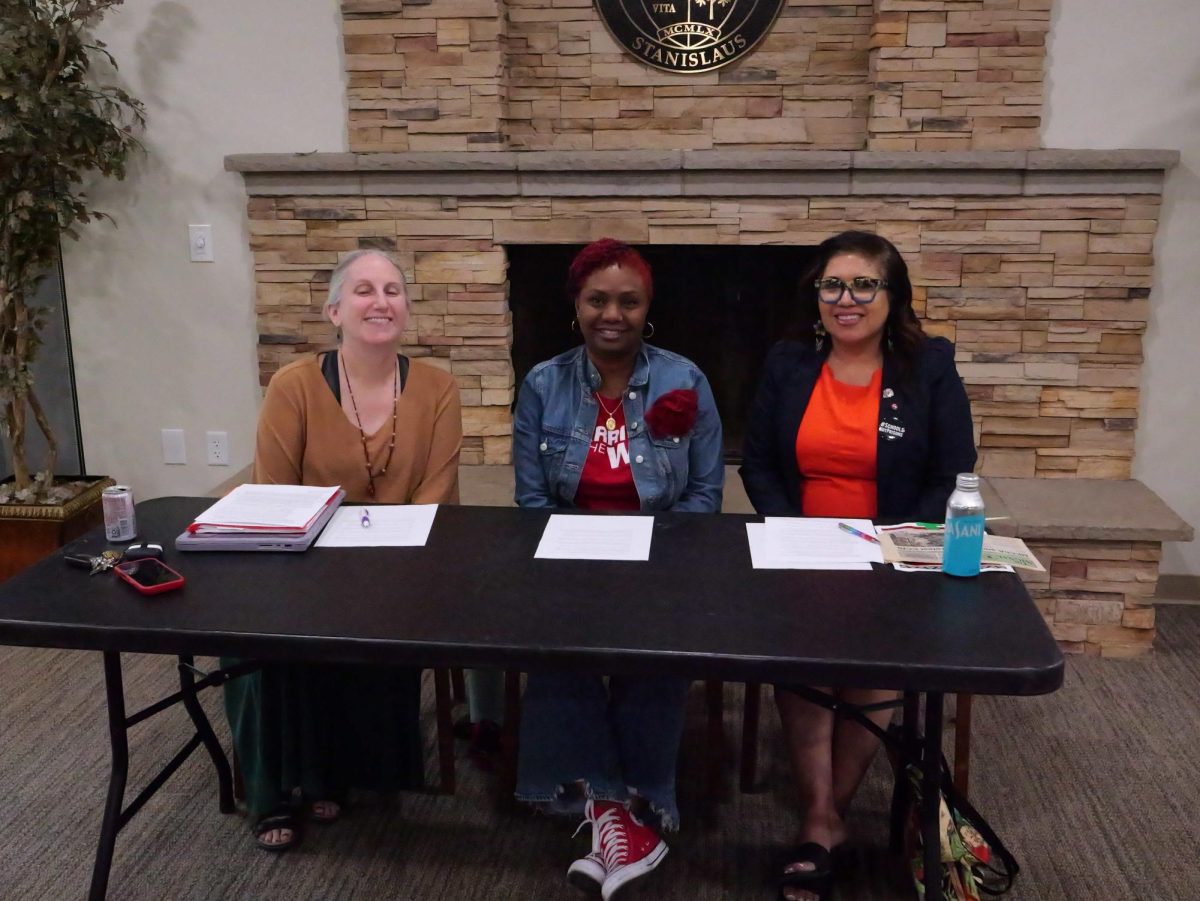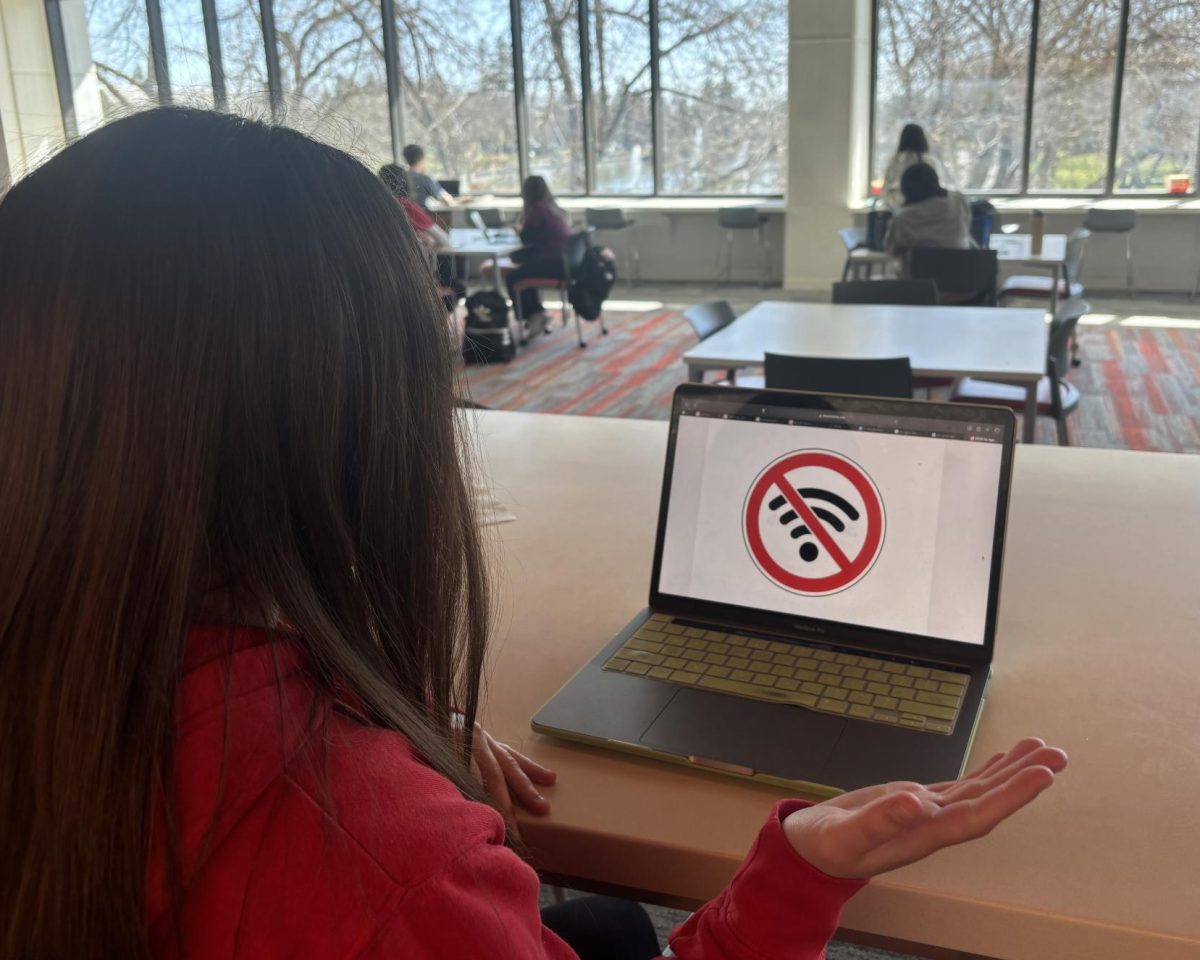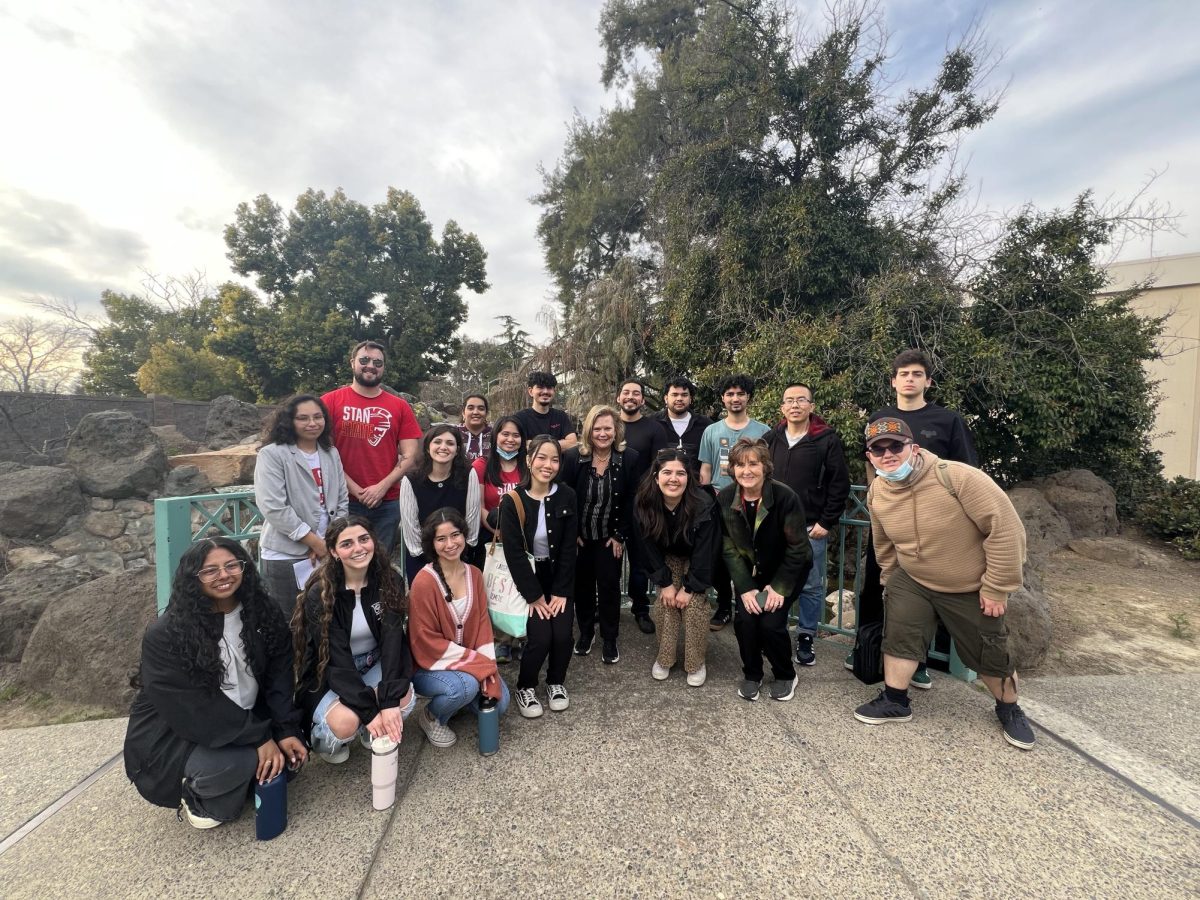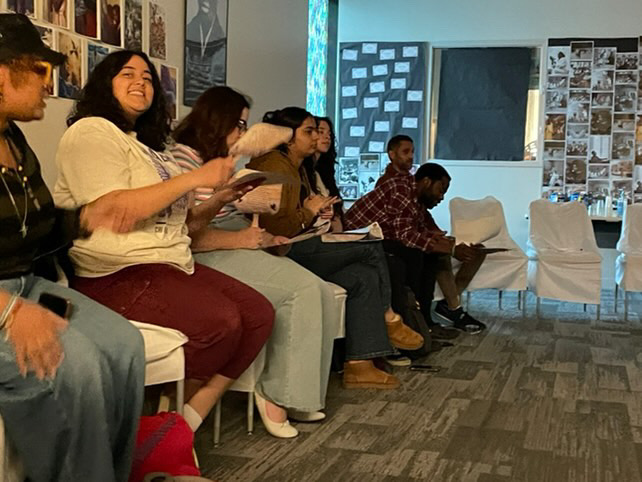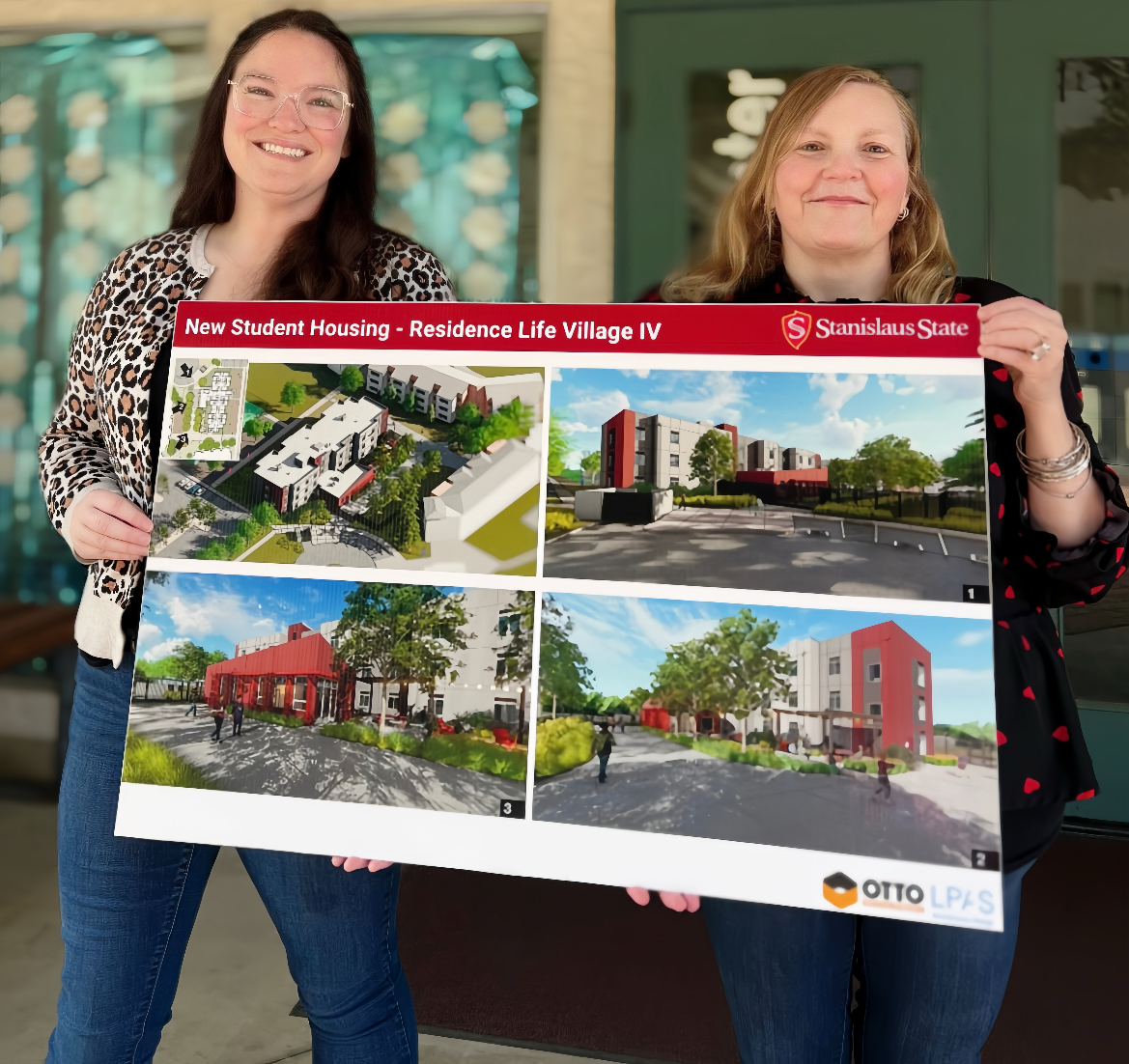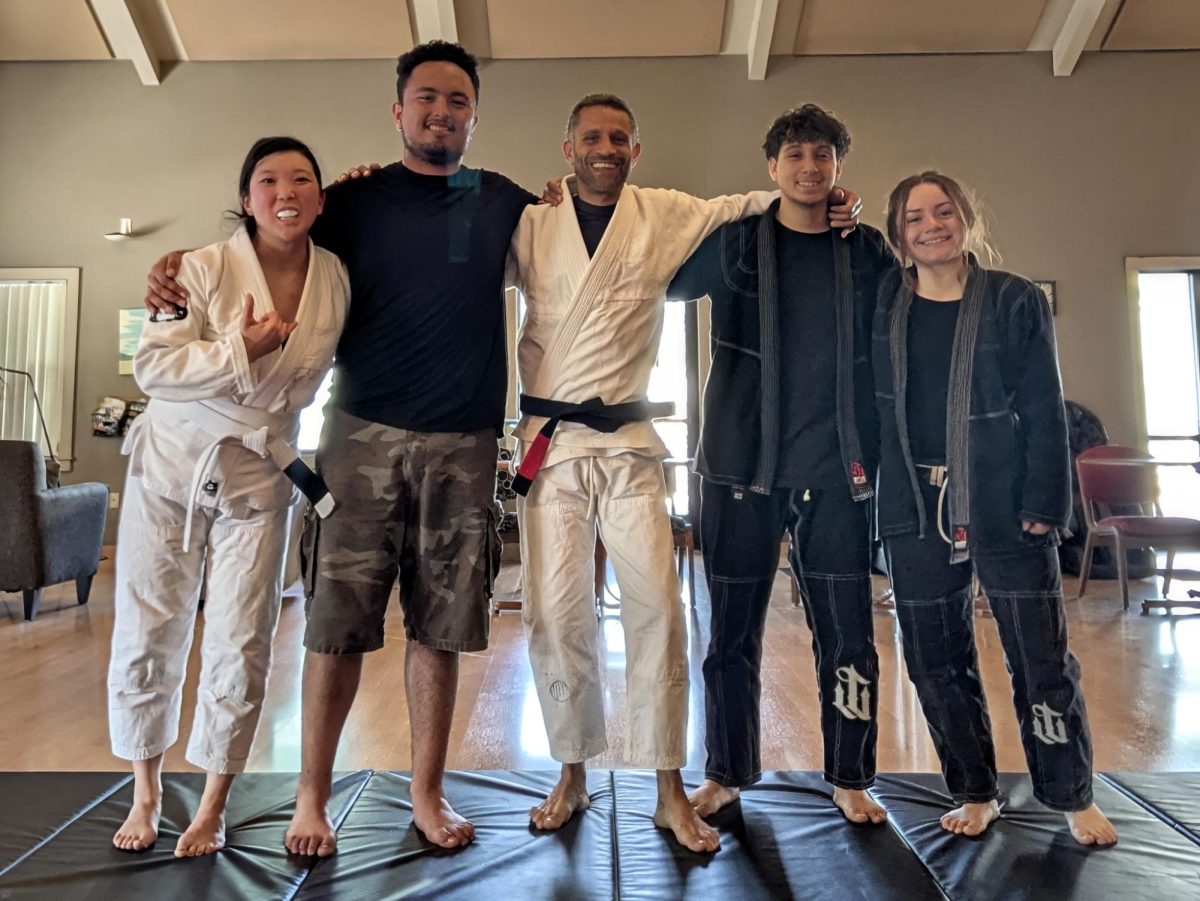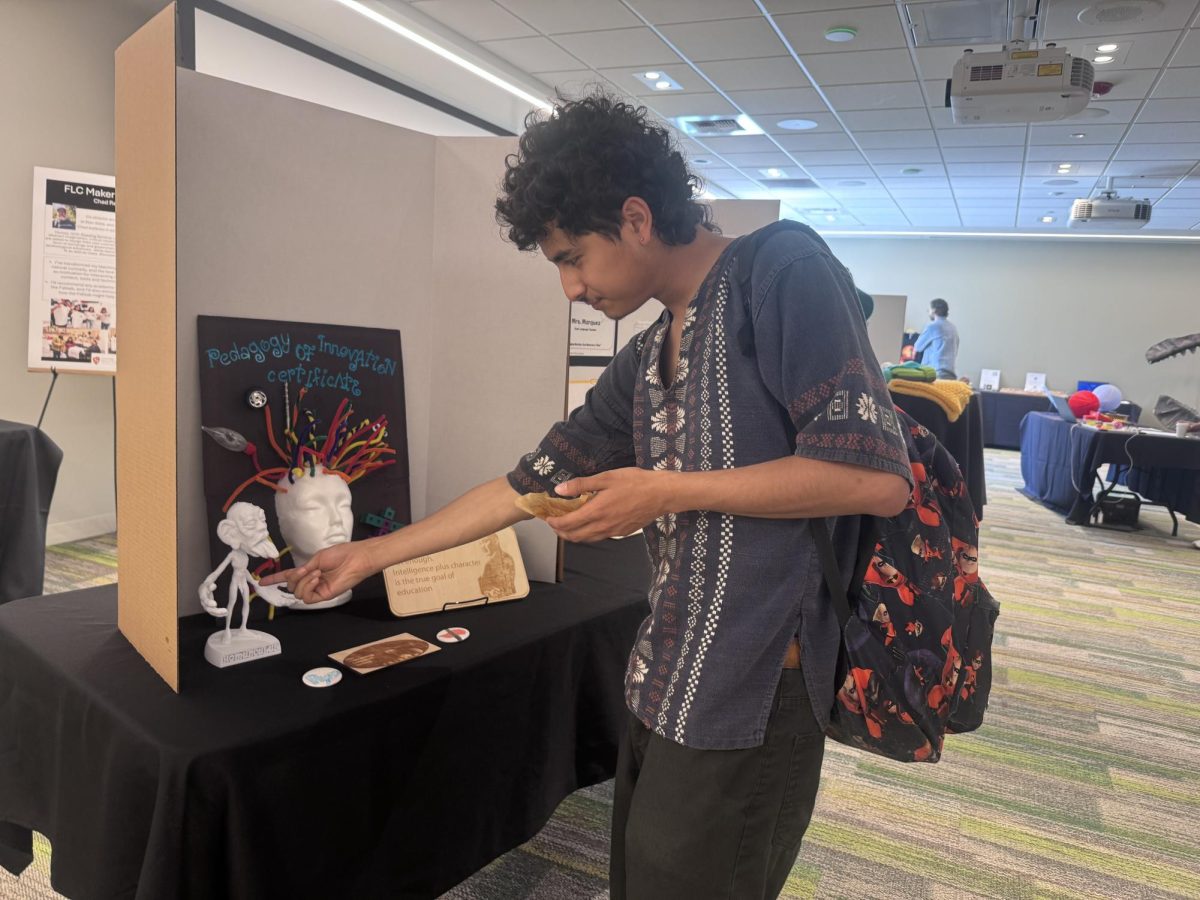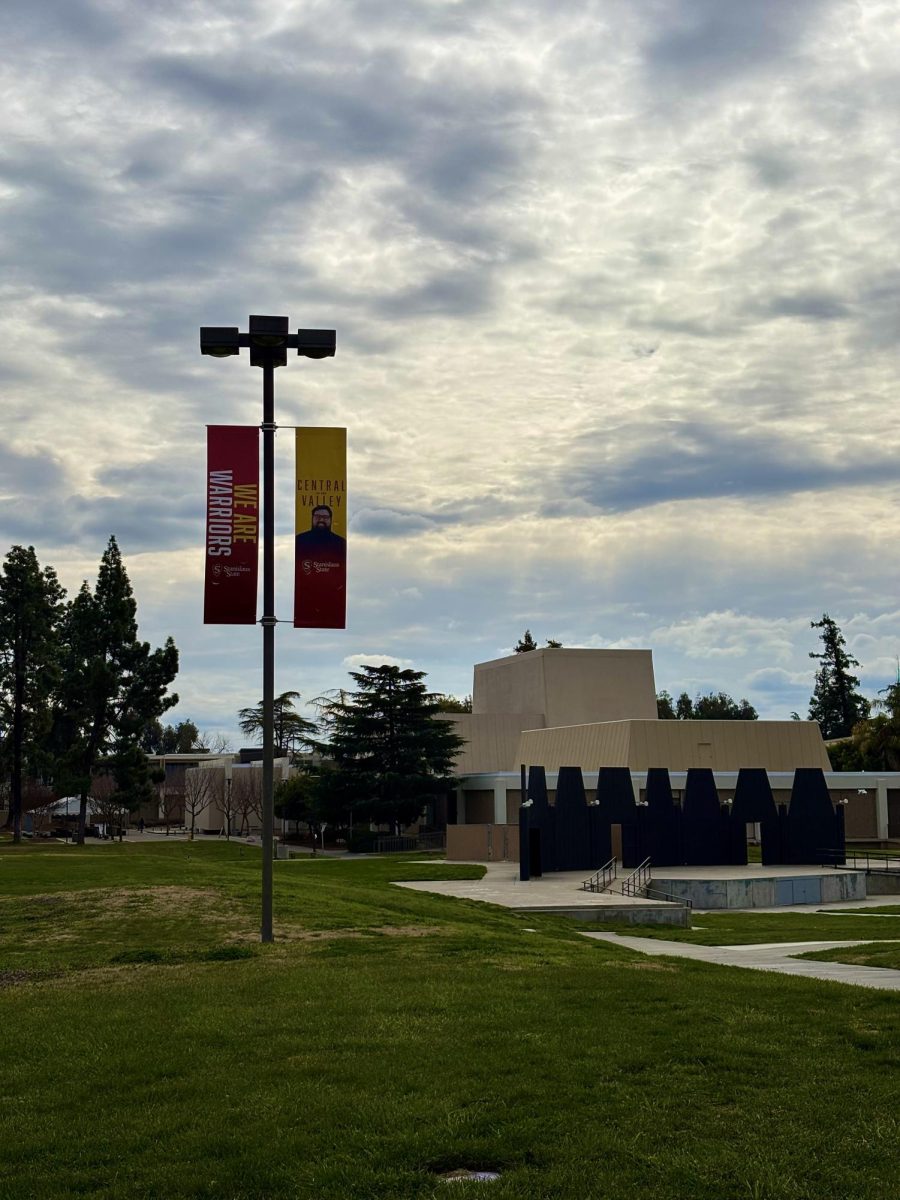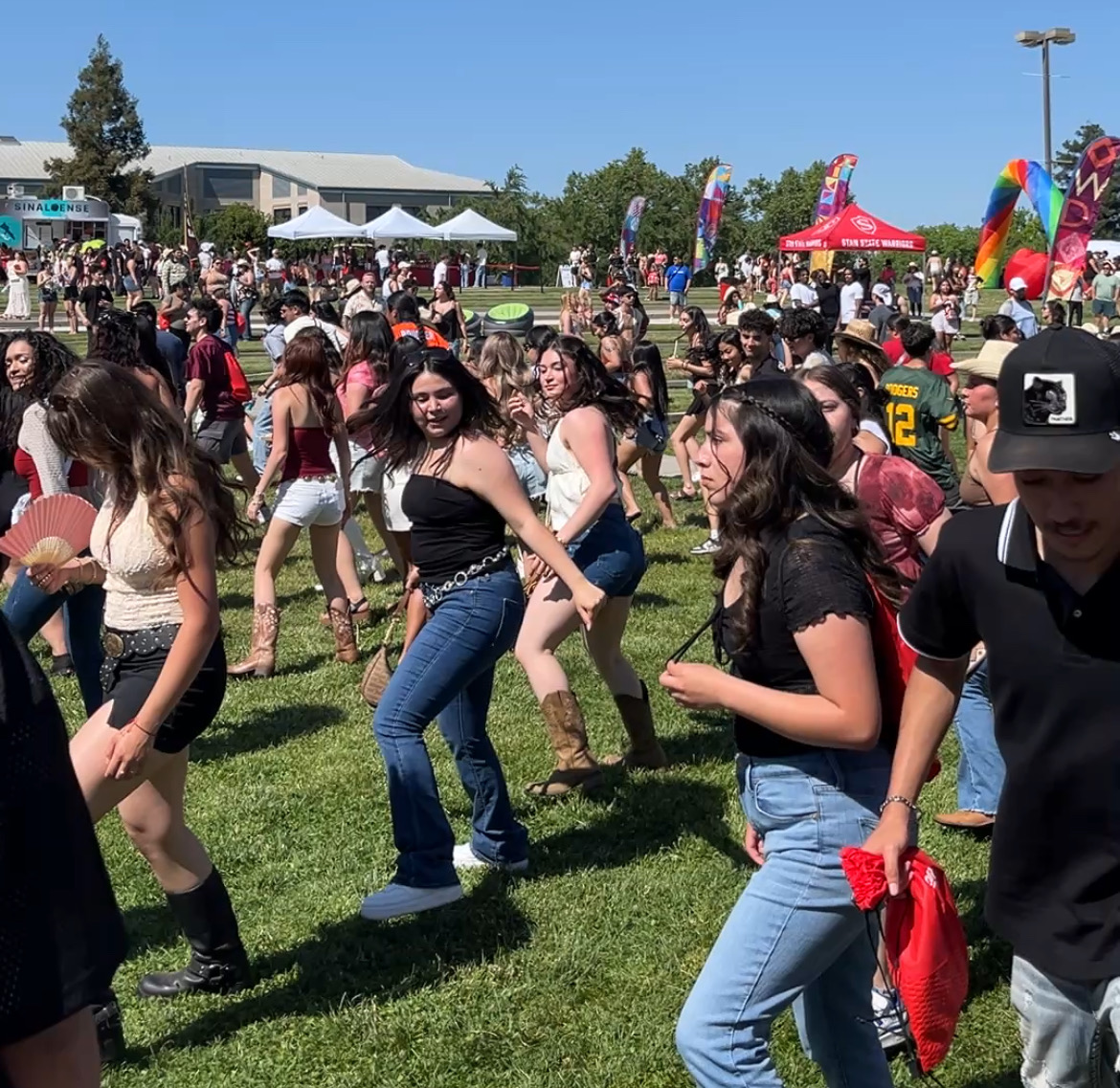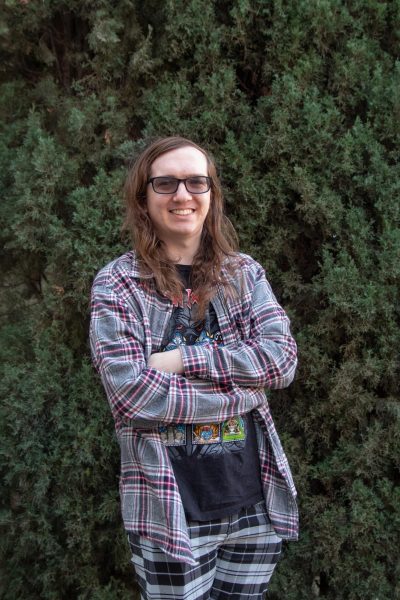In today’s Academic Senate meeting, the Senate discussed the strikes on other CSU campuses that are occurring tomorrow and Thursday, listened to the ASI President’s proposal for a University Hour to build the campus community, and heard the Northern California Carpenters’ Union’s grievances about Brown Construction, who are currently bidding to be contracted for a student housing project.
Negotiations with CSU Go South, Strikes on Select Campuses Follow
In his committee report for the California Faculty Association (CFA), Chapter President Dave Colnic alerted the Senate that this week, the 2nd ever string of strikes in the history of the CSU are taking place.
Two of these strikes have already taken place, but there is one scheduled to take place at CSU Los Angeles tomorrow and another to take place at CSU Sacramento on Thursday.
The CFA is offering a free bus trip on Thursday to faculty who wish to join in solidarity with the strike in CSU Sacramento. The bus plans to depart at 7a.m. on Thursday morning from Fitzpatrick Arena and will make a stop at the Stockton Campus to pick up more volunteers.
Given that CSU Stanislaus is not on strike, faculty are still required to fulfill their work obligations on this date. Faculty can choose to take one of their guaranteed personal days or select to move the session online, as university policy allows for 30% of an in-person class’s instruction to take place online.
Proposed University Hour Would Guarantee Students and Faculty Time to Rest, Study, and Build Community
ASI President Adrian Sanchez has worked with the University Education Policy Committee’s (UEPC) academic scheduling subcommittee on the logistics of an hour in the middle of the instructional day where no courses are scheduled.
Sanchez pitched the idea in a presentation he delivered to the Academic Senate, proposing the hour take place from 11 to 11:50a.m. on Tuesdays and Thursdays.
“It would allow students to be on campus, be present, and to utilize those campus services that perhaps aren’t used as often as they should be,” Sanchez said.
Sanchez envisions that the hour could be used for ASI and Student Leadership outreach, research symposiums, study groups and group project work, club and organization meetings, and to grab lunch.
CSU campuses that already have a U-Hour include East Bay, San Luis Obispo, Cal Poly Pomona, San Marcos, Dominguez Hills, and San Bernadino.
Senator Dave Colnic, a member of the committee that held these meetings, said that he was initially skeptical about the proposal, but now believes it addresses a number of issues that have arisen since COVID and existed prior to that due to Stan State largely being a commuter campus.
“It’s a way, I think, at the end, to rebuild our community that’s been fractured by COVID,” Colnic said.
Faculty have a number of questions how the proposal to push courses that are normally scheduled during this very popular class time forward an hour will cause scheduling conflicts and disrupt other campus activities.
As such, implementation of the U-Hour in the near future appears unlikely. However, it will continue to be worked on until a formal proposal that addresses the numerous faculty concerns is drafted.
NorCal Carpenters’ Union Warns Academic Senate about Brown Construction
The NorCal Carpenters’ Union’s Field Representative, Mitchell Vinciguerra, alerted the Senate during their open forum about the allegedly criminal practices of Brown Construction, who is one of four bidders for a current student housing project contract.
“The construction industry is filled with crimes,” Vinciguerra said, “Many instances of wage theft are not brought to light and go unpunished.”
Vinciguerra claims that they have reached out to CSU Stanislaus and statewide CSU staff, but have not received a response.
Brown Construction is reportedly the defendant in an active case against the Regents of the University of California and under federal investigation for unfair labor practices.
Three Resolutions Pass the Academic Senate
Resolutions on the instructor withdrawal policy, the faculty policy on recording classes, and changing the term “academic probation” to “academic notice” all passed the Senate without dissent.
The resolutions on faculty policy on recording classes and changing “academic probation” to “academic notice” had no changes made to them since their first meeting.
The contents of and justifications for these three resolutions can be found in the Signal’s report on the October 31st Academic Senate session.
Language was changed on the instructor withdrawal policy, however, as it no longer mandates faculty to alert their students ahead of time that they will be implementing this policy.
However, there are plans for the university to send out text messages reminding students to login to their online courses and notify them they might be subject to removal from the course if they fail to do so.


